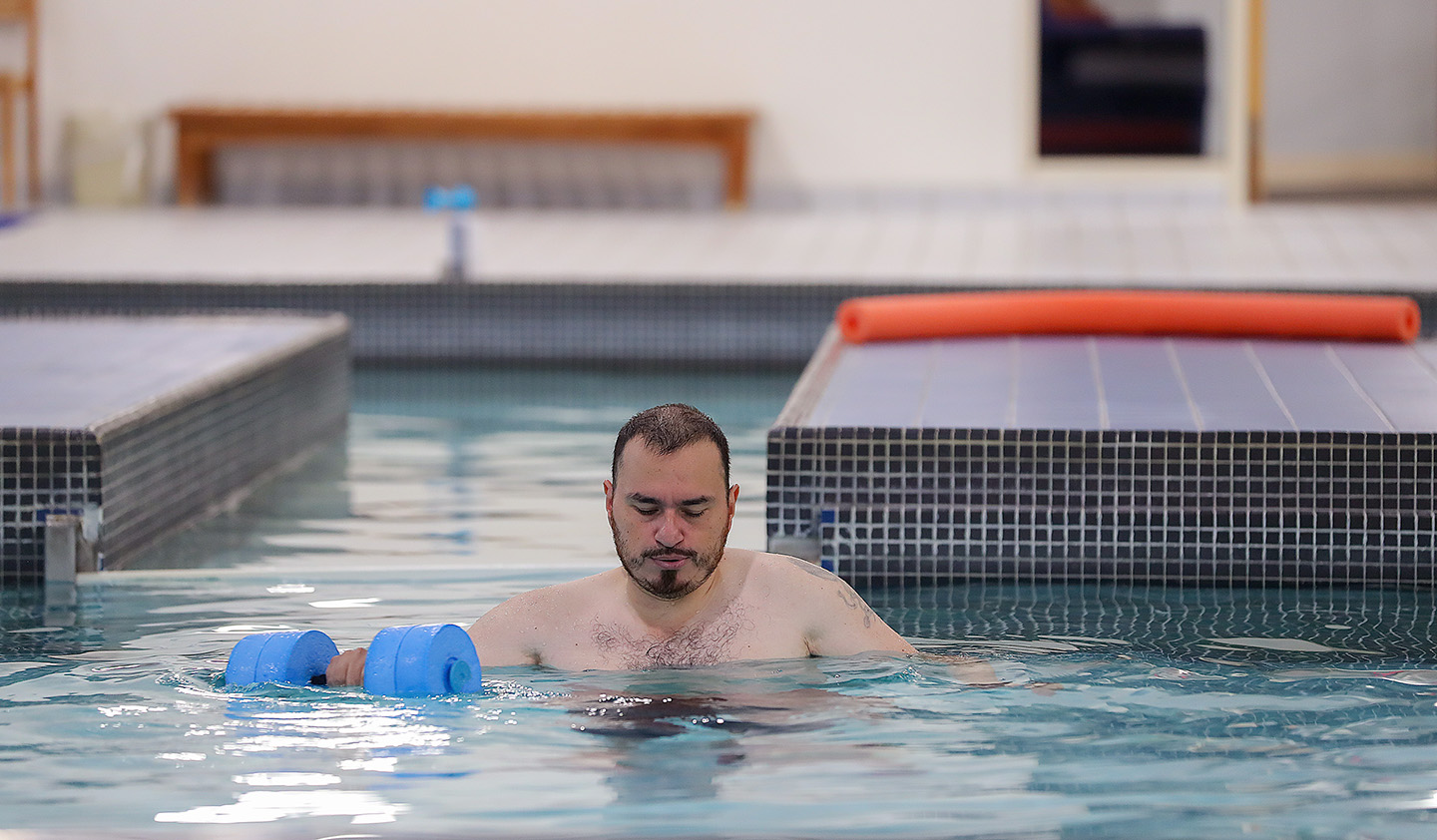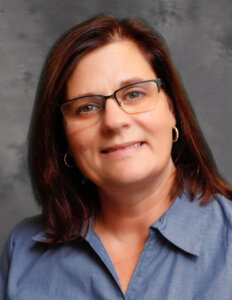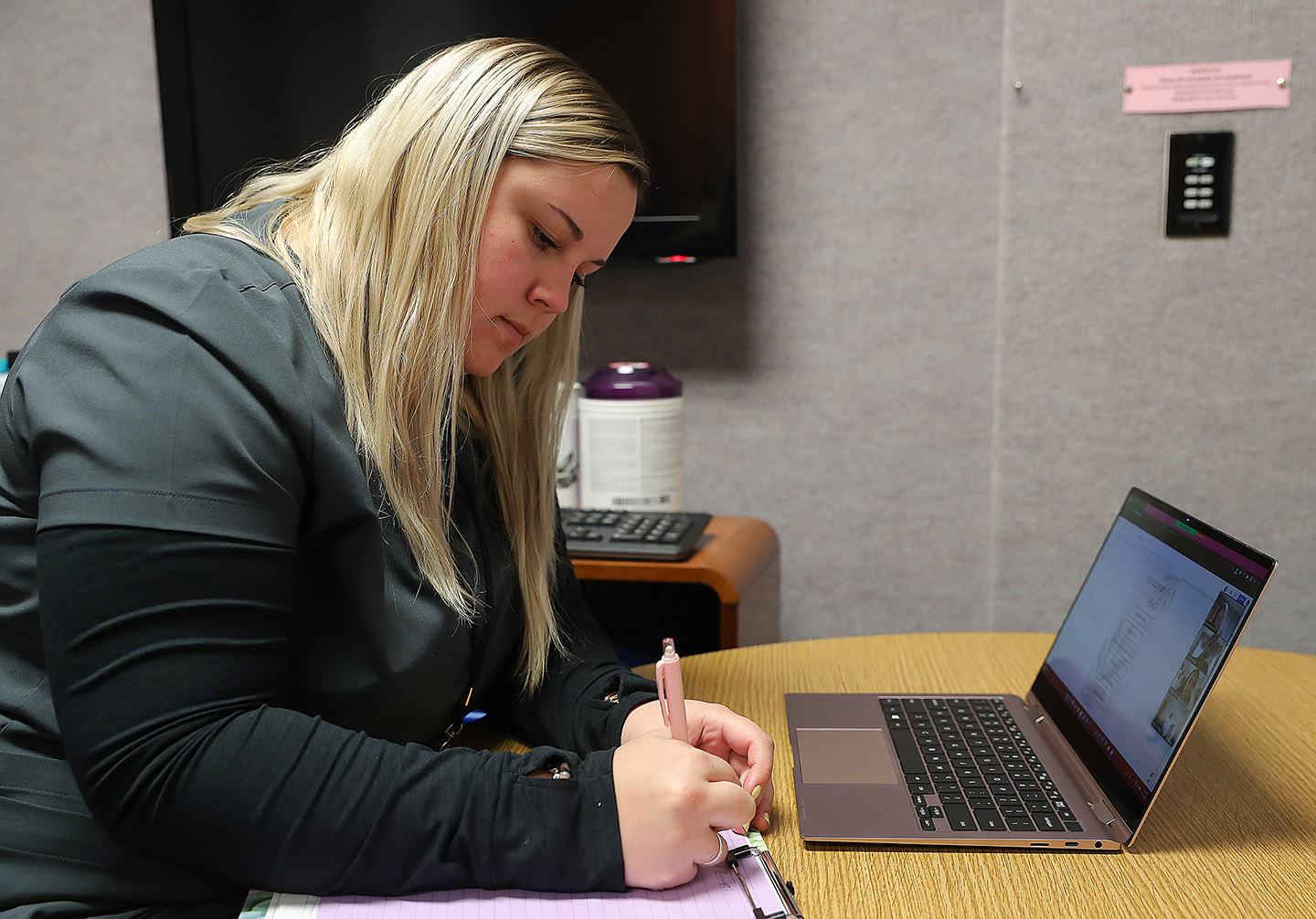
By TYLER ELLYSON
UNK Communications
KEARNEY – John Rodriguez was just 39 years old when he suffered a stroke in March 2018.
He hasn’t worked a full-time job since.
The Kearney man completed about two years of occupational and physical therapy, but he still has mobility issues in his right leg and the arm on that side of his body remains weak.
“I can only use one hand to type,” said Rodriguez, a graphic designer who does some work for a local marketing agency. The majority of his income comes from Social Security disability benefits.
Rodriguez continues to rehab on his own – he schedules regular workouts in the pool at CHI Health Good Samaritan – and he recently signed up for a new program that provides additional support during the recovery process.
Launched earlier this year, Creating Connections is an outreach project that uses telehealth technology to train future health care providers while empowering Nebraska residents who have suffered a stroke. The pilot program is a partnership between the University of Nebraska at Kearney, University of Nebraska Medical Center and Creighton University, with funding provided by a grant from the American Heart Association.
Rodriguez is one of nine individuals currently involved with the project, along with 32 students from the partner institutions. These students, studying occupational therapy, physical therapy, medical nutrition, speech-language pathology and nursing, meet monthly or bimonthly with their clients via teleconferencing to discuss challenges and victories, set goals and identify community resources that can improve their lives.

“The community partners get a chance to tell their story and really educate students about the process they’re going through. It gives them a window into what it’s like to be an individual who has experienced a stroke or brain injury,” said professor Miechelle McKelvey, a project leader and chair of UNK’s Department of Communication Disorders.
The students work together in small, multidisciplinary teams, allowing them to learn about a variety of medical professions and experience firsthand the collaboration needed to provide the best care for patients.
“We see those health care teams functioning in rural Nebraska. Several of the project team members have worked in rural Nebraska on a health care team,” McKelvey said. “After students complete their professional programs and they go into these areas, they’re really expected to function within a team framework from Day 1. This is an opportunity for them to develop those skills.”
That multidisciplinary approach is a big benefit for Melody Howard, a graduate student in UNK’s speech-language pathology program.
“That interprofessional education piece, working with other future professionals, is something we’re going to have to do in our field,” she said. “If we work in a hospital, we’re going to have to work with the PT, the OT and everybody else who sees that patient to give them the best care we can.”
It also prepares Howard for her clinical practicums, which are completed in both medical and educational settings. The Ord native already works with children through UNK’s Plambeck Early Childhood Education Center and the Speech, Language and Hearing Clinic on campus, but she lacked experience with adults.
Through Creating Connections, Howard and her team are helping a Gretna man achieve his goals.
“I think there’s a lot of value in that,” she said. “I think there’s a lot of value in being able to reach these individuals.”

The telehealth aspect is another strength of the program. Because many rural areas lack access to certain health professionals, it’s important to offer an option these residents can utilize without traveling long distances.
“When you’re in a rural state like Nebraska, being able to do this through telepractice is very beneficial,” McKelvey said. “Many of our individuals who live in rural communities aren’t able to access in-person therapy.”
The remote option “keeps them healthy, keeps them in their homes and keeps them happy,” she added.
Telehealth training is part of every student’s education in the UNK speech-language pathology program. In addition to the Speech, Language and Hearing Clinic, the university provides free teletherapy services for clients across the state through its RiteCare Clinic.
“We’ve considered it a critical part of training for a long time because we know that oftentimes the way we can connect those individuals in rural Nebraska with speech and language services is through telepractice,” McKelvey said.
Creating Connections will continue into May, then faculty will analyze the results before developing a longer-term project.
“It really is a way to look at preparing the next generation of health care providers, especially those health care providers who are going to work in rural areas,” McKelvey said.
As for Rodriguez, he’s currently focused on strengthening his body and improving the assistance available for stroke survivors in the Kearney area. He hopes to start a new support group in the near future.
“I think it’s a great thing they’re doing,” he said of the Creating Connections program, “because everybody needs help.”